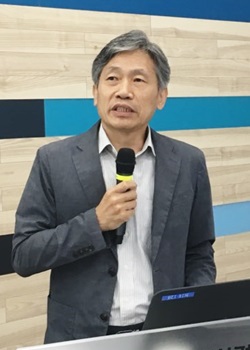Health Insurance Review and Assessment Service (HIRA)건강보험심사평가원 will push for making use of Artificial Intelligence(AI) in its daily operation.
In July, the agency will activate an ad hoc force to innovate reviewing and assessing jobs, which will make a program to catch bogus and other irregular insurance claims by using AI.

“We have continuously expanded AI-based electronic assessment from 40-year-long assessment know-how,” said Lee Tae-seon이태선, chief of Healthcare Data Convergence Office, in a news conference Tuesday.
Lee went on to say, “On July 1, we will launch Review and Assessment Innovation Corps to develop value-based screening and assessing system by making the best use of AI.”
The AI-based assessment is designed to reflect changing healthcare environment on the basis of accumulated data about medical cost requests and screening results at HIRA for years.
The innovation corps will first push for developing AI to improve internal work efficiency. For example, it will improve the scopes and targets of review, and discern irregular requests through using AI.
“HIRA’s basic policy on big data is to make people outside of the agency, in both public and private sectors, make better use of medical data,” Lee said. “We will teach AI how to distinguish normal from abnormal claims as fast as possible and cope with the latter. There is no period limit to operate the innovation corps.”
Besides, HIRA will invest 1.7 billion won ($1.5 million) in upgrading an open system of healthcare big data. Specifically, it will spend the money to automatize the open system data set and improve application procedures, dualize DB for big data analysis and increase storage, and increase remote account of the healthcare analysis system.
“HIRA is the first public organization to provide space to make use of data while observing the privacy protection law,” he said. “It is the concept of a data-free zone. In the future, we will make people use data by connecting and converging big data.”
Toward that end, the agency will standardize data and upgrade cloud environment, and the outline will be available as early as the end of this year, raising expectations about expanded range for using big data from next year, the official added.
Big data is accumulated data to perform each organization’s work, and related agencies should manage and operate their data, and share them with others if necessary, Lee noted.
Opposing the rumored merger of work between HIRA and National Health Insurance Service (NHIS), Lee said, “NHIS and HIRA are conducting different works. They need to manage and make use of the data on their own.”
“As some NHIS chapters gather HIRA’s reviewing results and use them for managing insurance payments, their work may appear to be overlapping,” he said. “In principle, however, the two agencies have only to manage their respective source data well, and link to each other if needed in the course of using the data.”

